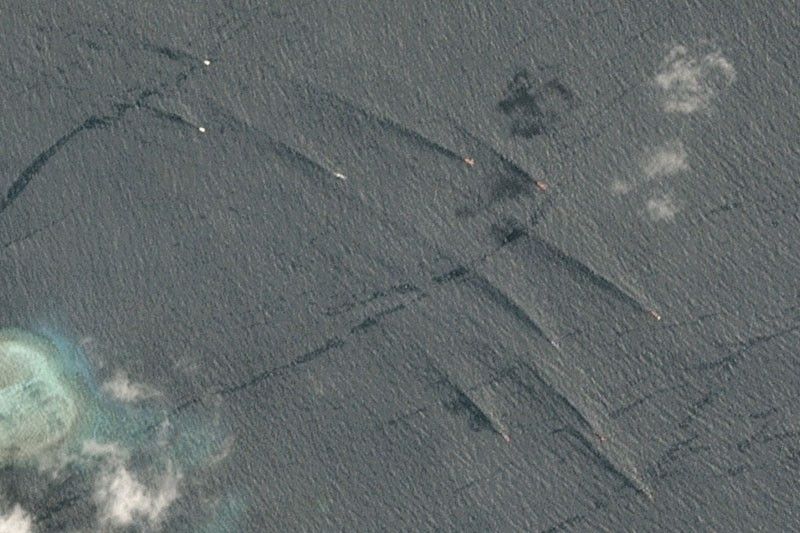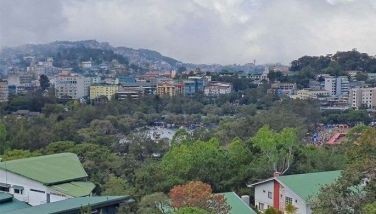Increased patrols show Manila's determination to assert West Philippine Sea rights — think tank

MANILA, Philippines — The Philippines' increased level of law enforcement and patrols in the West Philippine Sea reflect the country's determination to assert its rights amid China's continuing presence in the area, a US-based think tank said.
Washington-based Asia Maritime Transparency Initiative tracked Philippine patrols in the West Philippine Sea over the past year and noted a "dramatic" increase in activity.
"From March 1 to May 25, AMTI observed 13 Philippine law enforcement or military vessels paying a total of 57 visits to waters around the Spratly Islands and Scarborough Shoal," the think tank said in its report published on May 26.

This is a significant increase from the three vessels that only made seven visits to the same features between May 2020 and February 2021.
AMTI, however, clarified that these figures were only based on naval vessels that can be tracked through their automatic identification system. The think tank said it may have missed patrols by Philippine vessels that did not broadcast their location.
The think tank observed the following in some features in the West Philippine Sea:
- Pag-asa (Thitu) Island: The Philippine Coast Guard increased its patrols following reports of Chinese militia presence on March 20.
- Panatag (Scarborough) Shoal: On April 24 to 25, the PCG deployed BRP Sindangan and BRP Gabriela Silang while two China Coast Guard vessels (3102 and 3303) and one militia ship (Qiongsanshayu 00317) were also there.
On May 18, BRP Gabriela Silang, BRP Sindangan, BRP Habagat and MCS 3005 sailed within 10 nautical miles of the shoal, meeting CCG 3301 and 3102. One of the Chinese coast guard ships trailed PCG's MCS 3005 while the other pursued Habagat.
- Julian Felipe (Whitsun) Reef: The PCG also stepped up its patrols following the report that 220 Chinese maritime militia ships were spotted here.
- Ayungin (Second Thomas) Shoal: The coast guard also stepped up its patrols to Ayungin Shoal, where the navy maintains a presence through grounded ship BRP Sierra Madre.
- Escoda (Sabina) Shoal: PCG's BRP Cabra, along with Bureau of Fisheries and Aquatic Resources' MCS 3002 and MCS 3004 drove away Chinese fishing vessels on April 27.

AMTI, however, noted that PCG and BFAR only have a limited number of ships that can travel safely to features in the West Philippine Sea.
"The Philippines’ increased patrol efforts send a message that Manila is determined to assert its rights. But they pale in comparison to China’s near-permanent coastguard and militia presence throughout the South China Sea," the think tank said.
While Philippine ships sail to these areas on "staggered tours," Chinese vessels "operate as sentries" and stay in their positions for weeks at a time.
"Whether the Philippines will continue its current pace of patrols, and how China might react, is unclear. But while Manila’s combination of more public protest and greater presence seems to have had some success in dispersing Chinese vessels at Whitsun Reef and Sabina Shoal, it hasn’t impacted the overall number of Chinese vessels operating in disputed waters," the report read.
Chinese maritime militia vessels might have withdrawn from Julian Felipe Reef following daily diplomatic protests from the Department of Foreign Affairs but the ships just transferred to other areas in the West Philippine Sea.
Satellite photos released by US-based Simularity showed that the vessels from Julian Felipe Reef have recently gathered to the Philippine side of Tizard Bank.
"Still, the Philippines is drawing greater attention, and international condemnation, to China’s activities, particularly on the militia front," AMTI said.
- Latest
- Trending


































